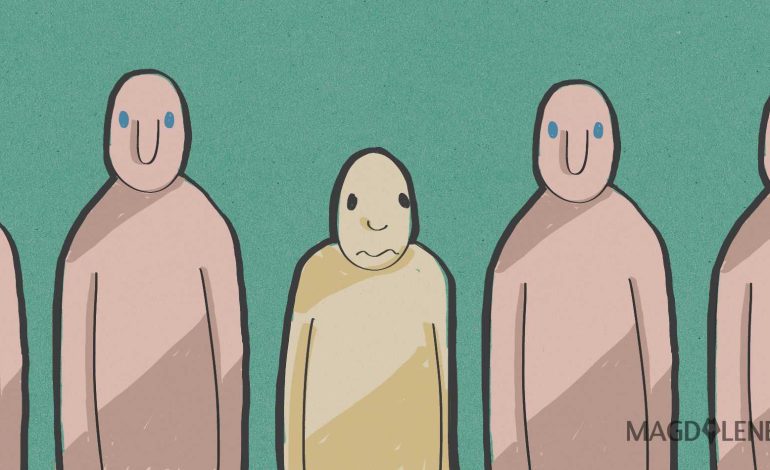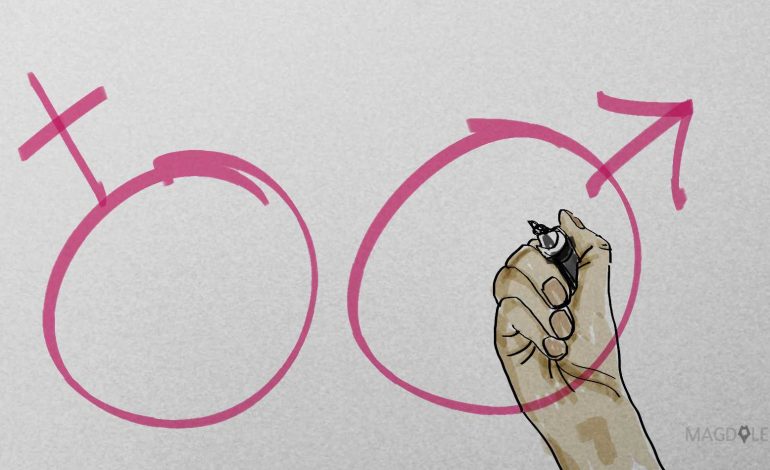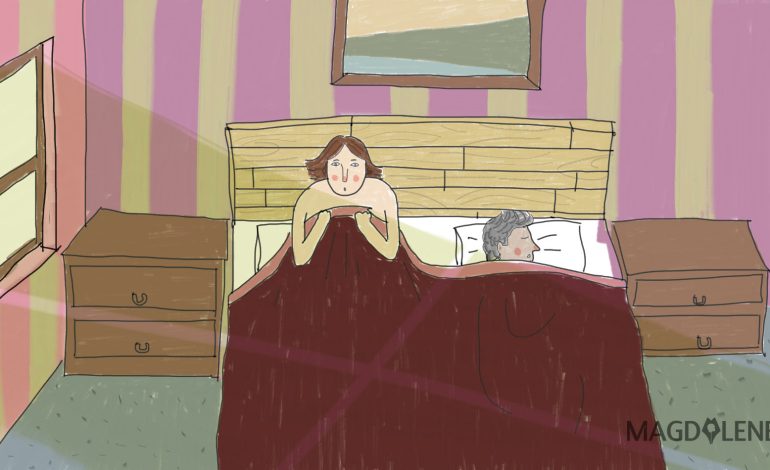Baggage and Stereotypes: My Take on White People

“White people” is my third take. I was going to write “westerners”, but I am going to focus on the bule and the usage of the word. Actors Ming-Na Wen, Idris Elba, and Gina Rodriguez are westerners, but in a minute we’re going to see why we – and even fellow westerners – often forget that they are westerners.
When we read “westerners”, we read “white people”, or bule, in Indonesian parlance. It happens worldwide. The term westerner is used to acknowledge the fact that not all American, European, Australian and so on are white.
But in real world, “westerners” often refers to white people, who are the majority race of Western countries (including Australia and New Zealand, which are east of Indonesia). Perhaps not only because the white are the majority of westerners, but because they are more likely to travel the world, to hold important positions, and to communicate with non-westerners compared to black, Asian, or Arabic westerners.
The extensive contact between Europeans and Asians began 500 years ago, when Portuguese explorers reached India, and then Malaya, southern China, and Japan. While Marco Polo and other Italian traders had reached China even centuries earlier, we have no proof of any Chinese diplomat or traveller ever staying in Rome or Constantinople.
The might of guns, capitals, science, and diplomacy enabled European nations, especially Britain, to rule over Asia and populated vast lands in Australia and America. The interaction between the Europeans and the Asians were hierarchical, and for centuries the Asians and the Europeans loathed each other while admiring aspects of each other’s culture.
Every Asian nation has a slang word for a white person, and white people would ask each other if it’s racist. Bule is a Javanese word commonly used to describe a pale, or even albino, buffalo. Singaporeans use ang mo, meaning redhead. Japanese say gaijin, which supposedly applies to all foreigners but are hardly used for Filipinos or Africans.
Whatever the term, Asians have similar ideas and stereotyping about white people. They are big, loud, and hyperactive. They are wealthy, they love traveling, and they keep asking why. The men are fond of local women and there are local women who are only interested in mister. The women are fond of alcohol and are overtly curious about the local culture, although they might be too fat to wear a traditional garment properly. They are the bule gila and the baka gaijin.
And, yes, Asians, especially the men, have misgivings about white men. There are worries among single men that Asian women (and men) would prefer a white man, who has advantages in the personality, money, and sex appeal departments. There is envy that white workers get the better perks, the better salary, and the better rank. There is fear, especially among academics and high-ranking officials, that Western business and governments are bullying the nation, whether through free trade agreement or through reports on human rights.
I’ve lived through this complexity. I learned the politics of Indonesia, the history of China, and Japan’s pop culture from white people, not from fellow Asians. I was jealous of white men who easily get a Japanese or Chinese girlfriend. Every day I learn something new from a white person’s writing and then following their writing style. I am unhappy with the negative portrayal of Asian characters in Hollywood – and feel confused that fellow Indonesians don’t seem to have a problem with it.
Again, getting into the feminism scene has solved many of my dilemmas and perplexity. Feminists acknowledge the problem of white superiority – the global belief that white people and culture are superior. In Indonesia and other Asian countries there are indeed white people who disrespect the local culture and people, who shamelessly air racist and sexist opinions, and who complain every day about the local life. Just think that they vote Republican, or Conservative, or Liberal (Australia, not Canada) parties. They are like that, whether in Jakarta or Jersey.
On the other hand, I have met wonderful white people living overseas and in Indonesia who are passionate about politics, the environment, and human rights more than the affluent locals do. It feels like college days all over again but it’s better – it’s the present day. It’s the current reality.
The relative easiness of white people in Indonesia in accepting being called bule, compared to the controversial term Cina in referring to Chinese-Indonesians is well, another source of my envy. I believe this is not always the case, but the story goes that a white person can take the streets of Indonesia easily. He or she will be looked at and will hear the exclamation “Bule!”, but the locals are in awe of him or her. On the other hand, Chinese-Indonesians would feel less secure on the street. And when locals shout “Cina!”, unfortunately it will be in a less friendly spirit.
I am a wallflower, so I will never be as outgoing as the friendly bule. But it still shocks me that many loudmouthed and extrovert Chinese-Indonesians in the room would be silent outdoor. It still surprises me that “expatriates” in Indonesia (and many other Asian nations) are still represented by white westerners, since the more numerous Koreans, Indians, and Chinese hardly interact with the locals and share their knowledge and feelings. On the other hand, yes, I wish more non-white westerners would have the chance to live and flourish in Indonesia.
I am happy that more white women are writing for Magdalene and I can feel their love for Indonesia (which seems bigger than mine). I am pleased that white feminists worldwide are aware of the peril of White Feminism – the tendency to ignore the voice and experience of women of color. Partnership with Rappler gives us the voice of Filipina women weekly, but my impossible dream is still to connect with other Asian feminists. In the meantime, thank God for the bule feminists.
Mario wrote about being a “bule hunter”.






















